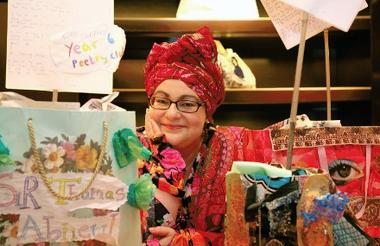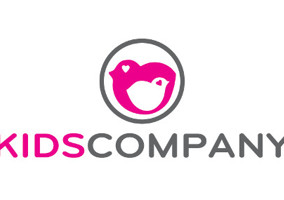Hers was a life of connection with others and I am saddened to hear of the death of my contemporary, Camila Batmanghelidjh.
Given that her life story became bound up in charity scandal – her charismatic leadership of the Kids Company and its dramatic failure - it seems appropriate to reflect on the challenge of risk for those of us engaged in social action, because the true charity scandal for me is when we don't take risks on behalf of those we work.
I am not looking to re-examine the select committee enquiry, the investigation, the court cases, the play that followed the closure of Kids Company as a charity.
Some concerns are well founded, some are on the basis of hindsight and sometimes it all strays into fantasy, such as, for me, a suggestion from the Charity Commission that if charities grow their income and expenditure, they can simultaneously grow their reserves.
That looks good on paper but is very tough in practice. Short of endowment donations, there are rarely the margins or surplus to allow this in our non-profit context.
Some charities will fail
What I do know is that if Kids Company was a risky venture, which no one seems to dispute, one reason was that it was trying to tackle a rising toll of risks to children and to society.
Many charities do this and we should celebrate what they do as loud and proudly as we do risk takers in enterprise and investment. Good governance is critical, yes, but we should also accept failure and that in a world of risk charities will try things and some will fail.
In business, 60% of start-ups fail within three years of getting going. That is seen as normal. We have lost Thomas Cook, Wilko and Debenhams into bankruptcy, this is just the way that markets work. But when a national charity closes, it is a scandal.
I am reminded of the saying of the late professor Johnston Birchall that “when a business fails, few people comment, but when a co-operative fails, commentators ask if the co-op model can ever be made to work”.
I can’t predict when the next charity scandal will hit, but it seems to me that in between we ought to have more of a grown-up discussion about risk. Why do we expect so much more of charities, when the challenges that they are responding to are often growing in scale?
Inflated expectations
There is some research that suggests that people who give to charity want to believe that their money is put to good use, so that they are less likely to question the effectiveness of charities. Some charities themselves perhaps overclaim what can be done with a donation, in order to raise money.
Either way, we can end up with inflated expectations.
Our standard models of risk management in the sector don’t help. The Charity Governance Code focuses on mitigating and managing risk rather than selecting and taking risks. The result is that charity governance places more weight on safeguarding the organisation than it does on safeguarding the mission.
It is all rather ironic, given that so many charities are open about trying ultimately to do themselves out of business. We would be better off saying “be alert and do take the right risks”.
There are examples of charities doing just this, such as the development of contextualised safeguarding in youth charities or a turn to co-operative models on community housing and homelessness.
At Pilotlight, for example, we have been able to provide pro bono support to the Edinburgh-based homelessness charity, Rowan Alba. The charity has worked through a community benefit society to attract risk capital to purchase a property for long-term accommodation for people coming off the street. It is risky, but a good risk for the return on their mission.
Our work is with around 160 charities every year and the most common request is for pro bono support to diversify income. Many charities are being entrepreneurial in tough circumstances and the risks they take should be acknowledged.
Charity closures
So, thank you Camila for a life of risk.
As I see it, the charity sector should be valued for how it reduces risks to society and judged by how effectively overall it does this. Taken to its logical conclusion, then, seeing some charities close could be a signal of the health of the wider sector and not one of its failing.
Of course, right now, local charities are indeed closing, with a scandalous loss of services to people in need, so this is not to see a silver lining in the toughest of times the sector has faced.
But it would be an own goal and indeed an authentic scandal if over the years to come, at a time when we most need them to take risks, no charities fail.
Ed Mayo is the chief executive of Pilotlight, a charity which provides free pro bono support to charities and social enterprises in the UK
Related Articles











